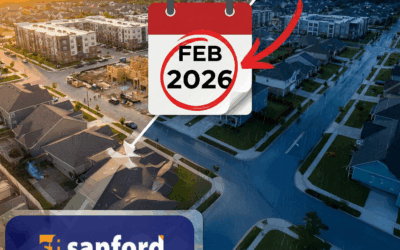New year, fresh start – well, not exactly when it comes to lenders. If you’re looking to purchase a new home or refinance in the new year, it’s important to make sure your spending in 2023 doesn’t snowball into a home loan avalanche.
With the silly season fast approaching, we’ve rounded up our tips to help make sure your Christmas spending doesn’t impact your home loan goals for the new year.
Why do lenders care about Christmas spending?
When you apply for a home loan, lenders play Santa Claus with your finances, carefully checking your list of income and expenses. They want to know exactly what money is coming in and going out to see if you can afford your potential loan.
While Christmas spending may be a once-a-year celebration, lenders tend to be less jolly, treating expenses as expenses, regardless of what they’re for.
What you spend will be categorised, including what you spend on entertainment (Christmas presents and after work drinks will be lumped into this), home or rent expenses, groceries, utilities etc. A lender may also decide to classify the purchases made under these categories as living expenses, subtracting from your overall borrowing power.
Lenders also peek at any debts you currently owe, like existing personal loans or credit cards – so stashing those Christmas expenses on your credit card won’t make them magically disappear.
What silly season spending should you be watching out for?
With your spending habits and expenses influencing your home loan application, it’s important to keep a few things in mind this Christmas:
Buy now, pay later spending
AfterPay, Klarna, Zip Pay etc. Buy Now Pay Later platforms have become extremely popular in recent years – especially around the holidays.
When used responsibly, these platforms may be a helpful tool to make purchases – especially with Black Friday or pre-Christmas sales – but it’s important to note that these platforms can have an impact on your chances of home loan approval.
Whilst they do not typically charge interest on ongoing payments, they may charge late fees as well as account keeping fees. When making multiple purchases through these platforms, you may also struggle to meet your repayments – accruing late payment fees across multiple purchases. This can be particularly impactful if you link these accounts to your credit card.
Frequent missed payments may result in the provider reporting your behaviour to a credit reporting bureau, which is reflected in your credit history and can hurt your credit rating and your chances of loan approval.
Buy now pay later purchases may also be looked upon negatively by the lender as it can reflect poor money management and spending habits, indicating to the lender that you may be a risky borrower or facing financial hardship.
Credit card debt
Whilst credit cards can be a great tool for managing finances, not every cardholder has the discipline or budget to repay their balance in full each statement period.
If you’re only ever making minimum repayments on your credit card balance, you may find the extra spending you do at Christmas has added up once the new year rolls around. As mentioned above, these liabilities must be declared to your home loan lender so they can factor this into your borrowing power.
If you’re planning on putting Christmas purchases on your credit card, keep in mind that unpaid credit card balances may reduce the amount a home loan lender allows you to borrow -and could even contribute to your application being rejected if the debt-to-income ratio is too high.
The holiday hangover
It’s easy to get caught up in the magic of the Christmas season. Gifts under the tree, delicious Christmas dinners, entertaining at home, drinks with work colleagues, big budget Christmas parties, New Year’s Eve cruises…. But the magic of the holiday season wears off and you can be left with a serious financial hangover in the new year.
So how can you avoid a holiday hangover and make sure your silly season spending doesn’t impact your home loan approval (or your budget!)? Here’s what we’d recommend:
- Make a budget and stick to it
Establish a budget to ensure you can afford your Christmas expenses and pay them on time. This is especially important if you’re using a credit card or buy-now-pay-later services. - Pay your bills on time
Timely bill payments are crucial for your credit score. Missing payments can negatively affect your credit score, making loan approval more challenging. - Pay off your debts
Reducing your debts can improve your chances of loan approval. Pay off any outstanding debts, whether it’s a maxed-out credit card or a personal loan. - Reduce excess spending
Be mindful of your holiday spending. The costs of socialising, food delivery, holiday parties, and gifts can add up quickly. Sticking to your budget can help you avoid overspending. - Think about timing
If you plan to apply for a mortgage, consider reducing entertainment and lifestyle expenses at least three months before applying. If you’re applying in January, remember that your holiday spending will be scrutinized.If you’re concerned about the impact of your holiday spending on your loan approval, consider waiting a bit longer before applying.
Not sure if your silly season spending will impact your loan approval?
Thankfully we’re here to do the hard work for you. Before ever sending your documents to the lender, we’ll sit down to work everything for you and discuss what can be done to increase your chances of success.
Ready to get started? Call or email our team today.




